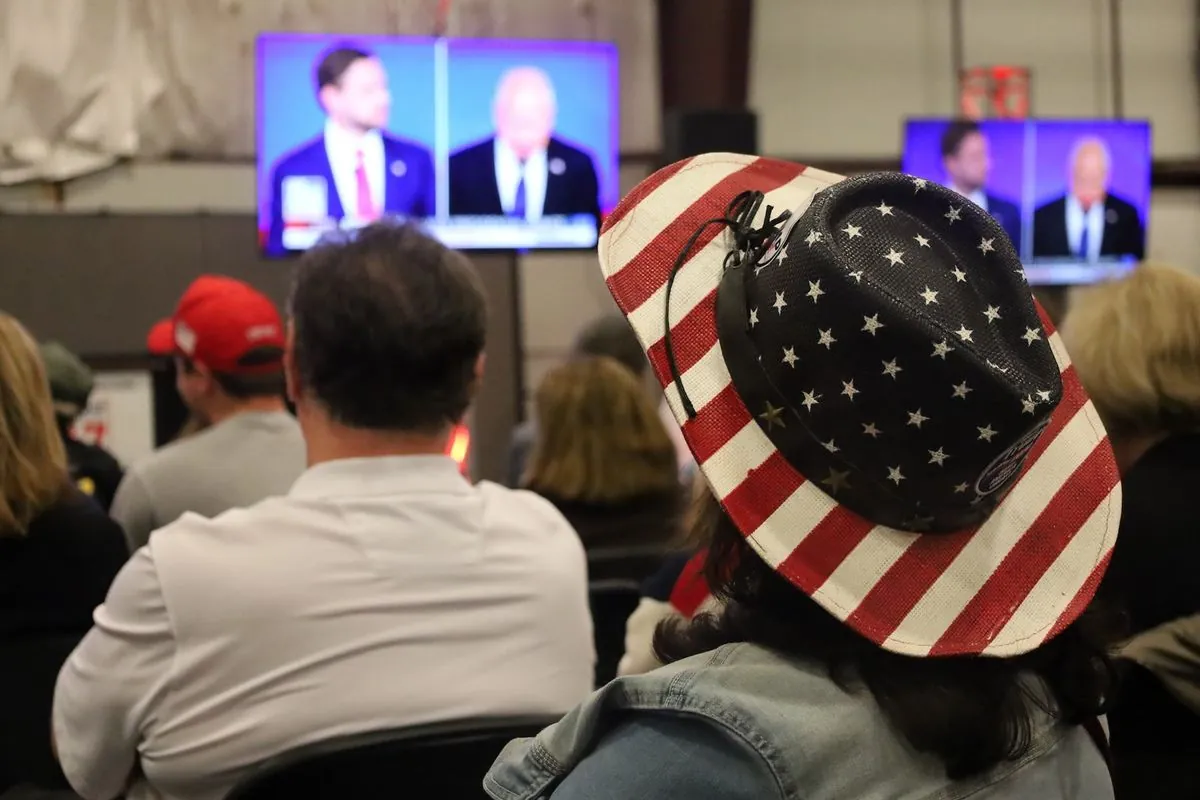In a bustling burger bar in Waukesha, Wisconsin, a crucial swing county, Republican supporters gathered to watch the vice-presidential debate between JD Vance and Tim Walz. The event, held on October 1, 2024, sparked intense reactions, particularly during a heated exchange between Vance and CBS News moderator Margaret Brennan.
The debate covered various topics, including Israel-Iran relations, healthcare, and the January 6, 2021 Capitol attack. However, it was the discussion on immigration that ignited the strongest response from the audience. When Brennan fact-checked Vance's comments about Haitian migrants in Springfield, Ohio, the room erupted with frustration.
JD Vance, the junior United States senator from Ohio since 2023, pushed back against Brennan's intervention, citing pre-debate rules against fact-checking. This moment resonated strongly with the Republican audience, who viewed it as media bias.
"Margaret, the rules were that you guys weren't going to fact check. And since you're fact checking me, I think it's important to say what's actually going on."
The clash highlighted the ongoing tension between Republicans and mainstream media. Donald Trump has long criticized news outlets, often labeling unfavorable coverage as "fake news" and referring to journalists as "the enemy of the people." This rhetoric has significantly influenced Republican attitudes towards the press.
A 2023 Gallup poll revealed that only 11% of Republicans trust the media a "great deal" or a "fair amount," compared to 58% of Democrats and 29% of Independents. This distrust was evident among the watch party attendees, who expressed dissatisfaction with the moderators' perceived bias.
The debate also touched on climate change, another contentious issue. Some attendees, like Cherie Boldt, questioned the scientific consensus on climate change, reflecting a divide between political views and scientific evidence.
Immigration and border security emerged as key topics. Vance's comments on securing the U.S. southern border, which spans approximately 1,954 miles, resonated with the audience. However, it's important to note that the Washington Post's Fact Checker found numerous false or misleading statements in the debate, with most attributed to Vance.
The controversy surrounding fact-checking in debates is not new. Following the Trump-Harris debate, CBS had stated that moderators would not aggressively fact-check candidates. This promise made their interventions during the Vance-Walz debate particularly contentious for Republican viewers.
As the 2024 election approaches, the debate highlighted the complex interplay between media, politics, and public perception. While polls showed no clear winner in the Vance-Walz clash, the event undoubtedly energized the Republican base and reinforced existing narratives about media bias.
The First Amendment's protection of press freedom remains a cornerstone of American democracy. However, the growing divide between political factions and media trust poses challenges for informed public discourse in the run-up to the presidential election.
